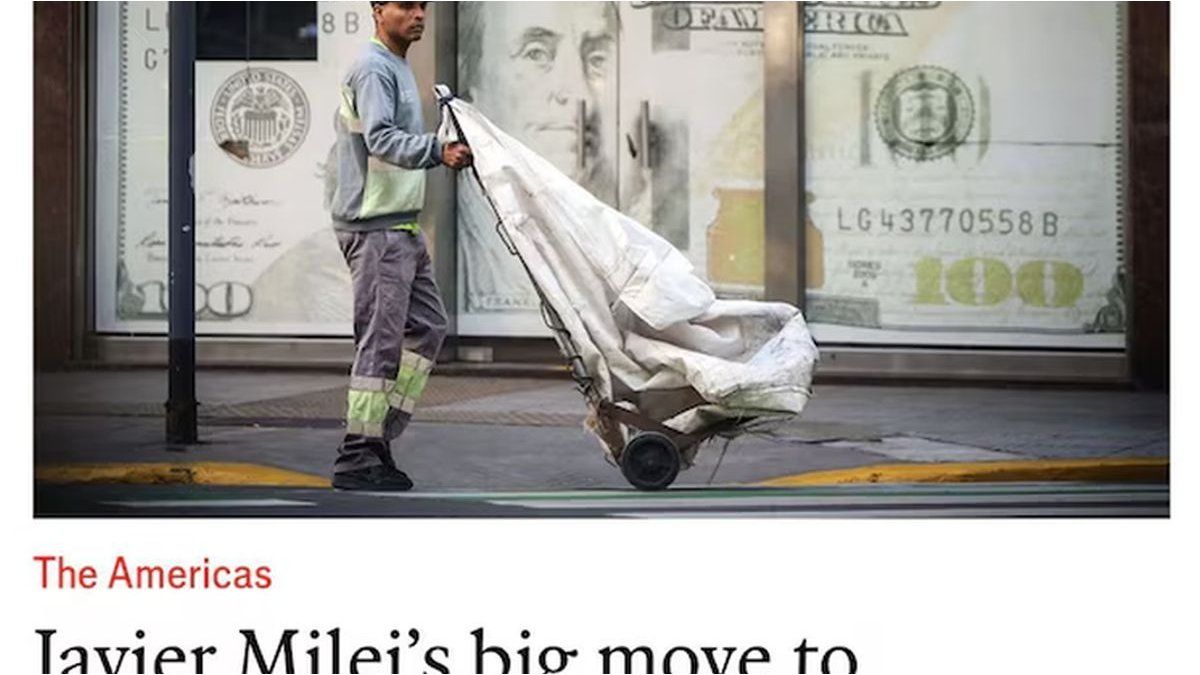After the exit of the exchange rate and the Start of phase 3 of the Economic Planthe renowned medium The Economist He dedicated an editorial to President Javier Milei in which he maintains that the president “seems closer than ever to achieve his transformation.” The analysis highlights recent advances in fiscal and monetary matters, the agreement with the IMF and The risks facing the libertarian plan in a complex global context and an still unstable political scenario.
The text begins by reviewing the achievements of the Ministry of Economy, led by Luis Caputo, After months of negotiations with the International Monetary Fund. “Many of Argentina’s previous 22 programs with the IMF ended up in failure. Milei’s history gives some credibility to his insistence that this time will be different,” says British magazine. In that sense, they emphasize that the president assumed power with a critical panorama: “He inherited an uncontrolled public spending, triggered inflation and a complex network of multiple capital controls and exchange rates.”
Faced with this situation, they emphasize that the Government applied a severe fiscal adjustment and managed to drastically reduce inflation. “A deep recession is now giving way to sustained growth. The poverty rate, which had reached 53% in early 2024, decreased to 38%, below the registered level when Milei assumed,” they emphasize.
“The reforms should allow the Central Bank to accumulate genuine reserves, not only those provided by the IMF. Argentina needs these funds to be able to return to international markets in 2026, when it faces maturities for 19,000 million dollars,” they analyze.
Milei capture.jpg
Milei, during the joint conference with US Treasury Secretary Scott Besent.
External risks and political challenges
In a broader analysis, The Economist It also warns about external threats. In particular, mentions the impact of the new tariffs driven by Donald Trump, which weakened oil prices and agricultural products, two key sectors for Argentine foreign trade. “That complicates the accumulation of reserves and generates caution among investors that are already reluctant to bet on a country with default history,” they say.
In this context, the recent visit of the United States Treasury Secretary, Scott Besent, as a “Backup gesture” to the libertarian administration.
In the internal plane, the publisher emphasizes that Milei maintains an approval level of 45%, although in decrease. “The markets will closely follow the regional and legislative elections in search of signs of an eventual return of Peronism,” they warn. They cite the economist Alejandro Werner, of the Peterson Institute, who says that “no structural reform is more important for Argentina than to abandon the economic policies of radical Peronism.”
However, the road is not exempt from obstacles. The Economist He emphasizes that the president “has few allies” and that his main political support comes from Mauricio Macri’s party, with which there are still differences. “A great victory of Peronism in the province of Buenos Aires could alarm the markets,” warns Ignacio Labaqui, Medley Advisors analyst.
In spite of everything, the British media concludes with a positive assessment: “The road is difficult, but for now, in a surprising way, Milei seems closer than ever to achieve its economic transformation.”
Source: Ambito
I am a 24-year-old writer and journalist who has been working in the news industry for the past two years. I write primarily about market news, so if you’re looking for insights into what’s going on in the stock market or economic indicators, you’ve come to the right place. I also dabble in writing articles on lifestyle trends and pop culture news.




